How Emerging Technologies Are Empowering Hotels To Offer Personalized Services?
Transformation isn’t a future event; it’s a present-day activity – Jillian Michael. The hospitality industry is making steady strides to improve the guest experience, especially with the technologies & trends. Striving for a smart outlook to serve better quality services to the customers is all it takes for a business to thrive ahead of its competitors.
Hotels have made intrinsic development a cornerstone for colossal improvements, whether it comes to enhancing the guest experience, prepare & train staff, or increasing savings. So far, hotel businesses encouraging a paradigm shift in the industry have made critical advancements at a faster pace in tandem with guest expectations.
The hospitality industry counts on IT & emerging technologies for increasing occupancy, enhanced detailing, high-level communication, and much-needed transparency. In 2020, the global leaders of this industry would begin shaping their business with the help of pivotal roles played by technology. We touch a few well-liked options below.
OTAs for Hotels
Online Travel Agents (OTAs) open a stream of self-serving windows for travelers to buy travel-related products or services, such as holiday packages, suite bookings, flight bookings, car rental and hire services, etc. Travelers place their bookings on these easy-to-use platforms with a slew of advantages, such as discount coupons, fly discounts, package discounts, and so on.
The online platforms enabling this system of interacting with the customers help hotels find new ways to reach the audience, which would have been, otherwise, limited to a portion. Finding the right mix of OTAs (Expedia.com, TripAdvisor.com, Hotels.com, etc.) is essential for hotels to manage distribution, collect revenue, and maximize profits.
OTAs determine a multitude of ways to interact with the customers. So, hotels can prefer strategizing season with marketing managers to concur on points of what’s working and what doesn’t. Smart hoteliers use HQ photographs, interesting descriptions, pricing strategies, competitive analysis, and promotion opportunities for driving colossal results home.
Smart Rooms with IoT
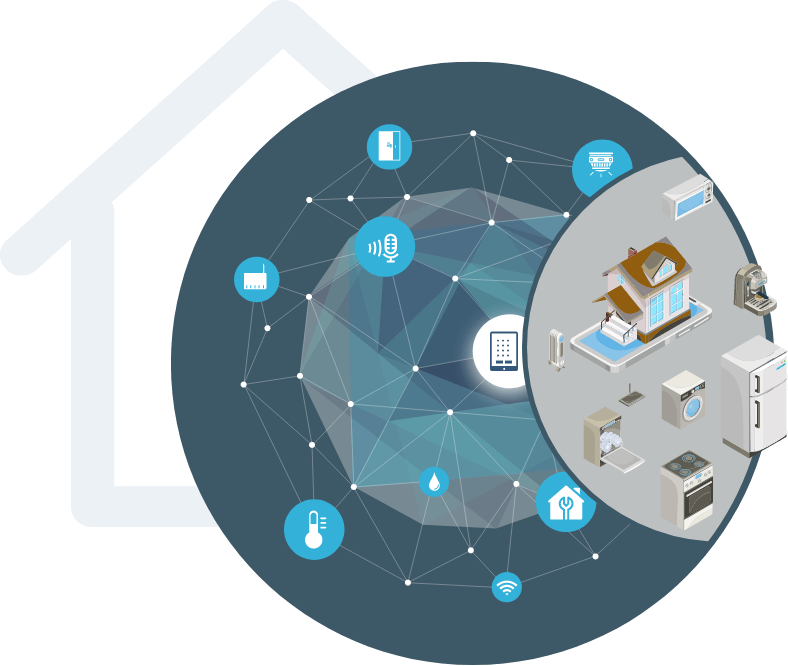
“Alexa, turn off the lights!” – How universal this line has become with the introduction of the Amazon Echo. Convenience is the key to entice customers and this is what Smart Rooms offer! With the Internet of Things (IoT), commonly-used devices connect through the Internet for data exchange. A smart hotel room adds novelty to a hotel business.
Customers or guests enjoy a great level of personalization with this feature. Hotels can keep a Smart Tablet or Central Control Point for guests to control their room conditions, whether it’s the lighting or temperature or TV control or any other feature. Guests can activate voice commands for enjoying smart controls of the room.
Would a customer enjoy a dysfunctional Smart room? Certainly not! But, hotel operators can keep an eye on the operating status of electronic devices or gadgetry remotely with live information, prompting repairs or replacement, should they fail. Consequently, hotel staff doesn’t have to personally visit hotels for checking and verifying device activity.
Tech-based Workflow Management
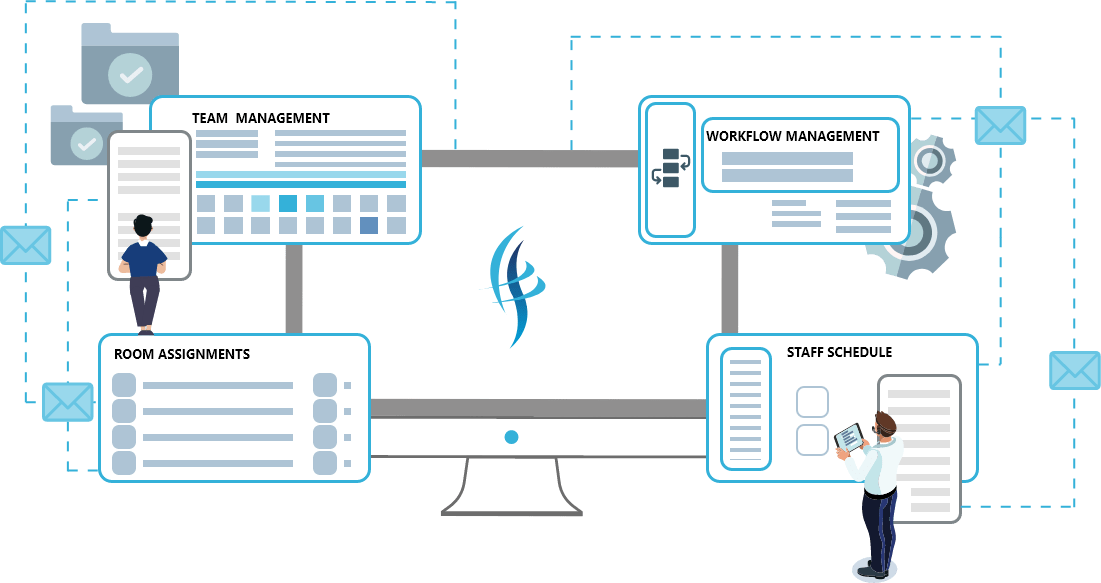
How a general hotel workflow performs? In an ever-changing hospitality environment, flexible workflow management dictates performance quality. Starting from preparations to scheduling to communication, everything under the sun goes on a diktat. However, shall any single mismanagement strikes, the entire workflow is disrupted to affect the hotel performance.
Tech-based workflow management is prominent concerning modern scenarios. App-based automation brings full operational efficiency with team management, room assignments, room rate decisions, staff scheduling, room upgrades, etc. This brand of workflow management saves valuable time, increases efficiency, boosts revenues, and guest satisfaction.
Various intelligent tools rapidly maximize employees’ response to different tasks, facilitating high-quality services to the guests. Add-on applications, cross-platform compatibility, integration of applications, etc. are some of the technical nomenclature that hoteliers would come to understand once they acclimatize themselves with the latest technology solutions.
Dashboard & Real-time Reports
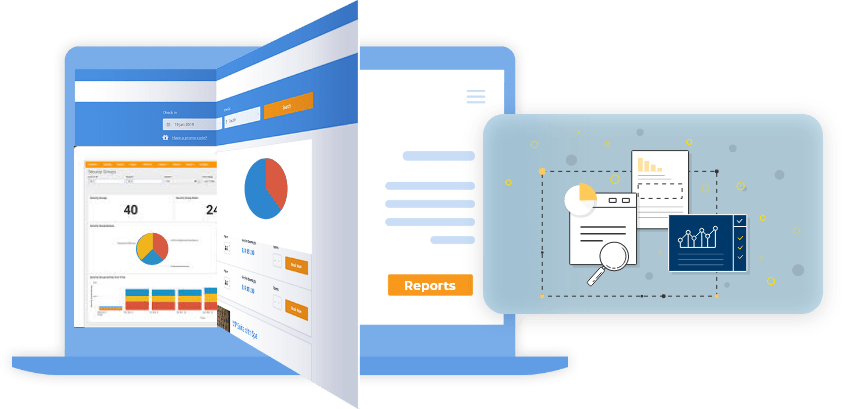
Hotel dashboard features data from different applications like PMS, Finance, HR, etc. for analyzing business operations. Hotel operators or owners will access centralized corporate data and insights of performance and also include data sources from different hotel management software applications. The proper representation of data across multiple platforms helps in report distribution and documentation.
An enterprising approach with integrated data and key performing indicators help guide on setting up a scope for taking steps in the future. Data is crucial. Hotel management staff and owners understand this imminent aspect of a business. However, no concentrated approach based on this data falters performance figures.
Hotel owners can deliver their best with the use of real-time reports to improve the guest experience. For instance, the delays in room servicing issues or property maintenance, etc. are quickly reflected in the real-time reports. With a modernized mechanism of the dashboard and real-time reporting, hoteliers can address real-time issues at critical junctures.
AI and Big Data
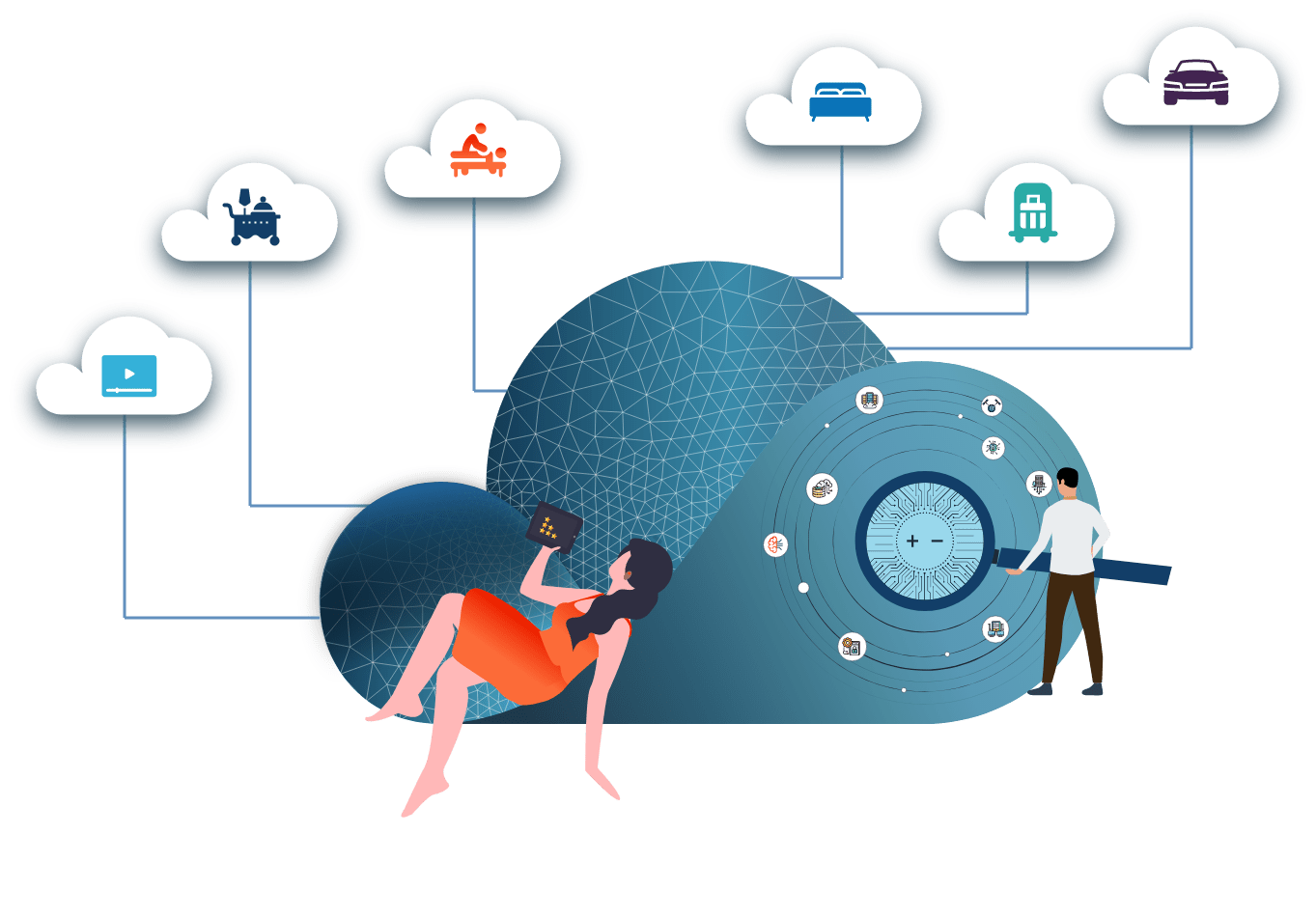
Artificial Intelligence isn’t only restricted to a reputation of being ‘trendy’ in the market. Although AI and Big Data are in a nascent stage in the hospitality industry, a few hotels have changed the way they personalize services for their guests. Be it serving them the right menu or providing the certain magazine they want, predicting customer behavior with AI and Big Data works magically.
Massive data and quick analyses by AI is the key component for any hospitality contingent. Hotels can have a major edge over competitors with the help of this data. Also, it induces efficiency through automation, considering data related to chores performed by hotel staff, basic services, labor requirements, and vital areas.
At this stage of the cutting-edge competition, hotels require performance optimization to bolster their profitability. Here’s not the time to go on a trial and error method, but apply tried and tested techniques for catering to the guests. AI and Big Data make major contributions to enhancing this functionality for a hotel.
In-room Tablets

In-room tablets for hotels and casinos are something people are used to seeing in the movies. This reality has turned hotels into perfect places for engaging guests with messages and promotions. Guests enjoy personalized service with in-room dining orders, control TV/lighting/HVAC, in-room settings, entertainment facilities, making bookings and reservations, and so on.
As the tablets serve as in-room concierges, guests can relax on the tops of their beds while scheduling spa appointments and setting the alarm for the same. Hotel owners can do away with the bulky compendium and any other paperwork unnecessarily delaying tasks that can be easily executed with the help of in-room tablets.
Available in iOS and Android functionalities, these in-room tablets provide guests with digital access to staff and hospitality services directly. No one requires making a call to the room service number or waiting a long time to make reservations. Adding a sophisticated layer to services, the in-room tablets enhance the personalized experience for the guests.
Service Robots
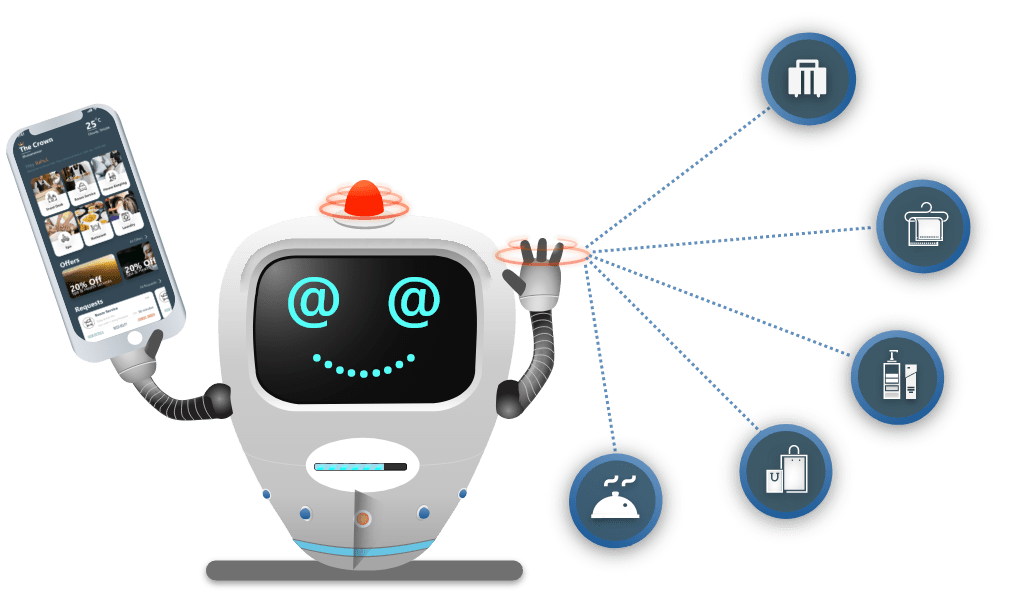
Smaller hotels may find this one as a premium service, but this is the future for hotel businesses of all sizes. These automated companions respond to serve the guests with food deliveries or any other essentials that would have come as a request from the room. Innovations as such are adorable and well-liked by the guests of a hotel or a hospitality business.
The technology-driven hospitality sector doesn’t have to make a rapid makeover by incurring huge costs or laying-off personnel. This is about developing a dynamic, integrated system for hotel developers & owners who are eyeing scalable solutions for performance optimization, operational efficiency, and the foremost thing – guest satisfaction.
- How Emerging Technologies Are Empowering Hotels To Offer Personalized Services?
- OTAs For Hotels
- Smart Rooms with IoT
- Tech-based Workflow Management
- Dashboard & Real-time Reports
- AI and Big Data
- In-room Tablets
- Service Robots
RECENT blogs >>>
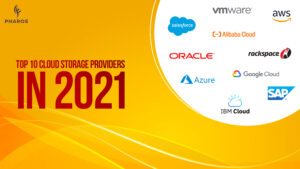
Top 10 Cloud Storage Providers in 2021
Physical servers used to have numerous tasks, such as Exchange Server, SQL Server, File server, and so on, before the arrival of cloud platforms and

AI-driven Market Research: Benefits for Marketing Professionals
5 Marketing Applications of Artificial Intelligence! Marketers may use artificial intelligence to create highly tailored consumer experiences at a fraction of the expense of traditional
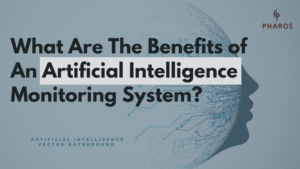
What Are The Benefits of An Artificial Intelligence Monitoring System?
Artificial intelligence Monitoring System has been around for quite some time now. From quick search engine suggestions to robot greeters at shopping malls, AI is

4 Ways AI is enhancing Customer Experience through times of crisis
AI, being one of the leading trends in technology, has continued to gain immense popularity for marketers as well as sales professionals and has grown

10 Ways You Can Leverage AI To Boost Your Business
“Business with AI, is that even real?” Yes, it’s 100% real and authentic. Businesses have started adapting Artificial Intelligence (AI) to automate repetitive tasks and
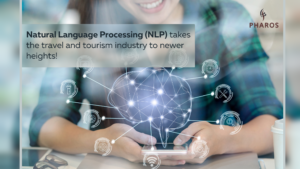
Natural Language Processing (NLP) takes the travel and tourism industry to newer heights!
The travel industry is an extensive sector, encompassing many other small sectors as well. Holiday planning,aviation sector, hospitality industry & the government together form the